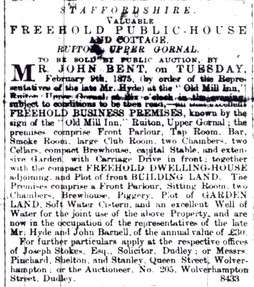 It begins with a notepad. Before long there are copies of photographs, documents and certificates. A trip to the local archives results in a sheaf of photocopies stuffed under your arm - snippets from census records, clippings from newspapers, an index from the national registers and maybe, if you're lucky, a scanned page or two from a history book.
It begins with a notepad. Before long there are copies of photographs, documents and certificates. A trip to the local archives results in a sheaf of photocopies stuffed under your arm - snippets from census records, clippings from newspapers, an index from the national registers and maybe, if you're lucky, a scanned page or two from a history book.
They all need a home. They all need somewhere to be, where each bit of information is easily accessible. These contain the pieces of the jigsaw puzzle that is your family history. You will need to reference them often.
For the first eleven years of my genealogy research, there was no internet. It existed out in the world, but it was as remote and foreign to me as Kazakhstan. That is to say that it was outside my culture and experienced by absolutely nobody that I knew. Text was something that happened in books, accessible to me only via a typewriter and later a word processor.
The point is that I know what it's like to store all of your family history off-line. My shelves are still creaking under the folders and boxes. In many respects, nothing has changed. Genealogists will continue to collect information. But then again everything changed utterly.
Personal computers and the internet revolutionized genealogy. Family historians everywhere no longer had to rely on accidentally bumping into each other in libraries and graveyards. We were on-line and we were talking to each other.
Forums, websites and databanks sprouted up like mushrooms all over the web. We swapped information and found distant relatives. We no longer had to travel hundreds of miles to visit a local archives. Someone who lived there would pop in on our behalf; and we all did the same for those researching an ancestor close to our homes too.
But best of all were the family tree websites. From the depths of dozens of folders came every piece of data going back centuries. Whole generations were suddenly organized, as could never be achieved on paper. A click of a cursor revealed patterns, links, relationships and the sort of clues that only those with eidetic memories could have slotted together before.
Those starting their family history research today are very lucky. You get to put it in order from the very outset. You will never know how much time you've saved. Moreover, with data placed directly into your digitalized family tree, you will not have to pile up so much paper!


 It begins with a notepad. Before long there are copies of photographs, documents and certificates. A trip to the local archives results in a sheaf of photocopies stuffed under your arm - snippets from census records, clippings from newspapers, an index from the national registers and maybe, if you're lucky, a scanned page or two from a history book.
It begins with a notepad. Before long there are copies of photographs, documents and certificates. A trip to the local archives results in a sheaf of photocopies stuffed under your arm - snippets from census records, clippings from newspapers, an index from the national registers and maybe, if you're lucky, a scanned page or two from a history book.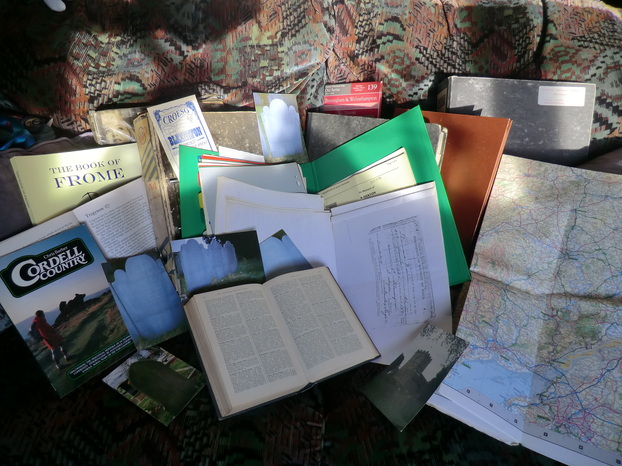



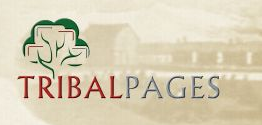 There are thousands of places on-line which allow the budding family historian to record all of their genealogical data. They each have their merits and they can be found with a quick search engine query.
There are thousands of places on-line which allow the budding family historian to record all of their genealogical data. They each have their merits and they can be found with a quick search engine query.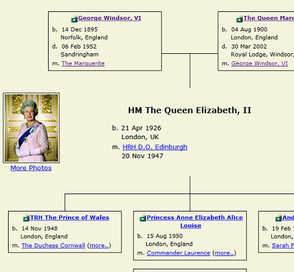




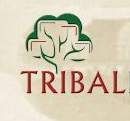

 St Tydecho's Churches in West Waleson 09/03/2014
St Tydecho's Churches in West Waleson 09/03/2014
 Goodies for an Outlander Premiere Partyon 03/06/2015
Goodies for an Outlander Premiere Partyon 03/06/2015
 Holocaust Memorial Day Interview with Rainer Höss, Grandson of Rudolf Architect of Auschwitzon 01/24/2015
Holocaust Memorial Day Interview with Rainer Höss, Grandson of Rudolf Architect of Auschwitzon 01/24/2015
 Romantic Valentine Gifts for an Outlander Fanon 01/16/2015
Romantic Valentine Gifts for an Outlander Fanon 01/16/2015

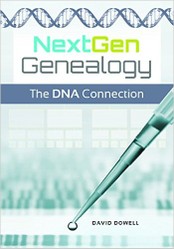
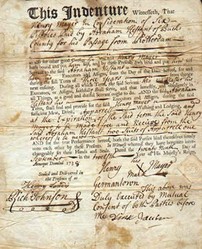
Comments
I'm sorry to hear that you've had problems there. I've been on it for over a decade, but never had cause to contact customer support, so I didn't know about that.
I'll see what I can uncover for you.
I too am a user of Tribal Pages (since 2009). The site is easy to use but I find it extremely frustrating by the fact that there's no Customer Support at Tribal Pages. Emails have never been replied to and phone calls un-returned. I'm debating whether I should look for a more responsive site.
Thank you, Paul. I certainly cheered the advent of the internet. There's still paperwork, but we can keep it on-line and not worry too much about the paper copies!
Excellent information. As a keen genealogist I know how easily one can become buried in paperwork!